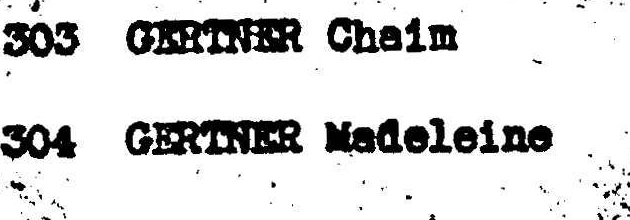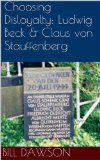Well it’s too bad to see David Irving in the news again. What makes it worse this time is that he’s not in the newspaper because of some dastardly speech or because Austrian or German authorities got hold of him once again, but rather because he was, unbelievably, invited to be in a newspaper. The Spanish El Mundo actually and deliberately sought his opinions on the occasion of the 70th anniversary of the outbreak of the Second World War. They ran his interview as part of a series that included the likes of historian Ian Kershaw and Yad Vashem director Avner Shalev.
This is probably the most opinionated you’ll ever see me at German History Buzz, so let’s get it over with and move on. I can only assume that someone with authority at El Mundo either subscribes to Irving’s “theories” about the Holocaust (or lack of a Holocaust), or at least finds them compelling, serious and scholarly enough to present them as being on par with, say, Ian Kershaw’s biographies of Hitler. It would be interesting to know if there was much dissent in the editorial offices when some genius suggested including Irving in the series. It terrifies me to think that there might have been no dissent.
My first reaction when I saw Kershaw’s name was, “Why did he agree to take part given that Irving was involved?” But I see in a later report that Kershaw was not told about Irving and would not have participated had he been told.
I tweeted about this topic on Wednesday and referred people to the transcript of the judge’s opinion in the case of Irving v. Lipstadt. In my own head I tend to refer to that opinion rather colloquially as “The Great Smackdown”. Now I’m a bit of a historical nerd so I anyway like reading this kind of stuff, but really I find the opinion simply breathtaking. Having read Lipstadt’s book about the trial, I found it interesting that she and others, throughout the proceedings, were really unsure and occasionally quite worried about Mr. Justice Gray. In the end, as you’ll see if you read the opinion, they had little to worry about.
It’s a huge, comprehensive, and thorough opinion, so I know that few will actually read it. If you want to get to the meat of the judge’s views on Irving’s merit as a historian, you can jump to section XIII, Findings on Justification, though you’ll be lacking some context when you land there. In those Findings, Mr. Justice Gray throws one bone out to Irving (“My assessment is that, as a military historian, Irving has much to commend him” [13.7, my emphasis]), before spending the next umpteen paragraphs grabbing it back and more.
If you are not planning to read the whole judgement, let me help out by ending this rather lengthy blog post with a close inspection of one of the defense’s (Lipstadt’s) historiographical criticisms of Irving. I’ll show the pattern followed by Mr. Justice Gray throughout the judgement: lay out the issue rather dispassionately, present each side’s arguments and, later, announce his own findings.
The Issue: Three speeches by Heinrich Himmler in 1943 and 1944 and how Irving treats them as a historian.
Mr. Justice Gray starts by presenting parts of the three Himmler speeches. I’ll just quote one of them here, Himmler’s speech to generals on 5 May 1944, presented in paragraph 5.223 of the judgement:
“The Jewish question has been solved within Germany itself and in general within the countries occupied by Germany. It was solved in an uncompromising fashion in accordance with the life and death struggle of our nation in which the existence of our blood is at stake. You can understand how difficult it was for me to carry out this soldierly order (soldatische Befehl) and which I carried out from obedience and from a sense of complete conviction”.
Defense’s allegations.
Mr. Justice Gray then presents the defense’s allegations of Irving’s faulty treatment of this issue in his books. For brevity’s sake, I’ll put just one of the defense arguments here, that of paragraph 5.227:
The Defendants direct particular criticism at Irving for the way in which he deals at p630 of Hitler’s War (1977 edition) with the speech of 5 May. He there paraphrases what Himmler in such a way as to conceal the uncompromisingly brutal language used by Himmler. After the reference to Himmler’s speech, Irving adds:
“Never before, and never after, did Himmler hint at a Fuhrer order, but there is reason to doubt that he showed this passage to his Fuhrer”.
The Defendants reply that it is pure surmise on Irving’s part that the relevant passage was not shown to Hitler but it is presented by him to the reader as established fact. They point out that in the 1991 edition the reference to Himmler’s speech of 5 May has been omitted altogether. The Defendants maintain that it is an important part of the narrative because it casts light on Hitler’s role in the extermination of the Jews. The inescapable inference is that Irving was determined to avoid compromising Hitler.
Irving’s response.
Mr. Justice Gray then summarizes Irving’s response to the defense’s allegations. I’ll quote here part of 5.229 because it’s relevant to the allegation I quoted above:
He [Irving] disputed the contention that the speech of 5 May points towards the existence of a Hitler order. From the facts the transcript of the relevant page of the speech has evidently been typed on a different typewriter and the pagination has been altered, Irving deduced that the document has been tampered with and is accordingly unreliable. He rejected the mundane explanation that Himmler was simply revising what he proposed to say in his speech. Irving further argued that it is to be inferred that the transcript was sanitised before it was submitted to Hitler because Himmler did not want Hitler to know that he (Himmler) was claiming falsely to have been acting on the order of Hitler.
Mr. Justice Gray’s conclusions regarding this issue.
Only near the end of the entire opinion do we get to read Mr Justice Gray’s own conclusions (findings) concerning the various issues in contention. And so at paragraph 13.46 we learn of his assessment of Irving’s handling of the three Himmler speeches:
It is a common ground that in these three speeches Himmler was speaking, with remarkable frankness, about the murder of the Jews. The question is whether Irving dealt in an objective and fair manner with the evidence which those speeches afford as to Hitler’s knowledge of and complicity in the murder of the Jews. I am satisfied that he did not. Two of the speeches provide powerful evidence that Hitler ordered that the extermination of the Jews should take place. Yet in the 1977 edition of “Hitler’s War” Irving suggests that the existence of a Hitler order was an invention on the part of Himmler. It does not appear to me that the evidence supports that suggestion. I consider that Irving’s deduction that the transcript of the speech of 5 May was either altered after Himmler delivered the speech or sanitised before it was shown to Hitler is fanciful. The absence of any mention of that speech in the 1991 edition of Hitler’s War was in my judgment another culpable omission.
Recommended reading:
I recognize that Mr. Justice Gray’s judgement, being as dispassionate as it is, doesn’t make for particularly exciting reading (though I enjoy reading it!) Therefore if you are interested in reading more about the trial, I can recommend the books which I’ve read. They are as follows:
- Denying the Holocaust: The Growing Assault on Truth and Memory, by Deborah Lipstadt (Amazon US, UK, CA, DE [english]). This is the book that caused Irving to sue for libel.
- History on Trial: My Day in Court with a Holocaust Denier, also by Deborah Lipstadt (Amazon US, UK, CA, DE [english]). This book covers the trial itself.
- The Holocaust on Trial: History, Justice and the David Irving Libel Case, by D.D. Guttenplan (Amazon US, UK, CA, DE [english]). If reading an account from the defendant herself, Ms Lipstadt, doesn’t feel objective enough for you, you can read this book by a third party.
And then there is this book, which I haven’t read but which I very much want to read:
- Telling Lies About Hitler: The Holocaust, History and the David Irving Trial, by Richard J. Evans (Amazon US, UK, CA). Professor Evans was a witness for the defense and is a prominent historian of Modern Germany.
Image credit:
The lead image to this blog post shows part of an actual deportation list. Willie Glaser is credited as the source and author of the image and has licensed it for “anyone to use it for any purpose including unrestricted redistribution, commercial use, and modification.” I didn’t want a photo of Irving on my blog, so I chose instead to show part of a document that represents a small part of the great tragedy which Irving and others like him choose to either disbelieve outright or minimize.



